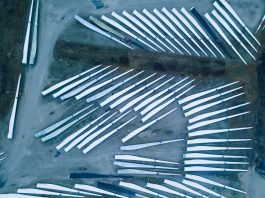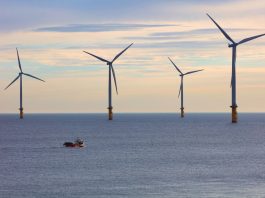The ambitious Dublin District Heating Project (DDHP) is set to bring sustainable and modern heating solutions to the city, aiming to reduce carbon emissions significantly and support Ireland’s climate goals.
COWI, a global engineering consultancy, has been appointed by RPS Group to help deliver this landmark district heating project, working closely with Dublin City Council on the design and planning stages.
Once completed, the project will be the largest sustainable district heating system in Ireland, providing a range of environmental benefits and supplementing climate targets.
Harnessing waste heat for sustainable energy
The first phase of the DDHP focuses on capturing excess heat from the Dublin Waste to Energy (DWtE) Facility on the Poolbeg Peninsula.
This captured heat will be used to provide energy-efficient heating for buildings and water systems across the Poolbeg, Ringsend, and Docklands areas.
By reusing waste heat, the project offers a sustainable alternative to traditional fossil fuels like coal, oil, and gas, aligning with Ireland’s push towards decarbonisation.
The project also aims to tap into additional heat sources from other industrial facilities on the Poolbeg Peninsula, potentially expanding to new areas as the system develops.
Once fully operational, the DDHP will be Ireland’s largest district heating network, serving both residents and businesses in central Dublin.
Leveraging COWI’s expertise in district heating design
COWI brings decades of experience in district heating systems, particularly from Denmark, where the company has been involved in similar large-scale projects for over 65 years.
For the DDHP, COWI will focus on designing the new energy centre located near the DWtE facility, as well as developing the network’s hydraulic systems to ensure efficient heat distribution.
An integral part of the design is the Dodder tunnel, which will run under the River Dodder, carrying the heat network pipelines.
COWI will contribute its tunnelling expertise to deliver both the preliminary and detailed designs, ensuring the system can handle future expansion.
In addition to the technical design, COWI will assist in finding a joint venture partner to manage the project’s construction through a design-build approach. This method will integrate design and construction processes, streamlining delivery and enhancing efficiency.
Damian McGirr, Director at COWI UK, commented: “We’re thrilled to harness our legacy in heat networks to support the adoption and acceleration of waste heat projects in Ireland.
“This project has the potential to showcase what is possible nationwide, and at COWI, we are committed to driving the uptake of waste heat projects for a more sustainable future.
“Projects like this are invaluable not only in achieving our sustainability goals but also in advancing the global energy transition.”
A step towards a greener future
Once completed, the DDHP will set a new standard for sustainable urban energy in Ireland. By reducing reliance on fossil fuels and promoting the use of locally sourced waste heat, the project will help Dublin take a significant step toward the energy transition.








